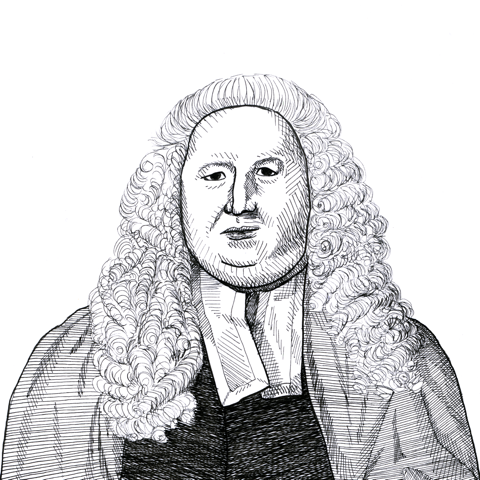Blackstone’s Commentaries on the Laws of England, first published in 1765, is generally considered to be the most influential legal dissertation ever written in English. While the preamble to the Seneca Falls Women’s Rights Convention (1848) cited Blackstone’s view on natural law, the real importance of his Commentaries was that they collected and systematized the major findings of English common law. Blackstone’s four volumes were the primary legal sourcebooks in England and were foundational for the development of colonial legal systems in North America. With the exception of Connecticut, every colony recognized the common law—generally understood through Blackstone’s synthesis—as a part of its legal structure. Each of New York’s five State Constitutions, the first adopted in 1777 and the latest in 1938, has held that “such parts of the common law … and of the acts of the legislature of the colony of New York, as together did form the law of said colony on the nineteenth day of April, one thousand seven hundred and seventy-five, shall be and continue the law of this State, subject to such alterations … as the legislature of this State shall … make concerning the same.”
The Women’s Rights Convention may have intended to make an ironic point in citing the “great precept of nature” as foundational for Blackstone’s understanding of natural law, for generally when advocates of women’s rights spoke of Blackstone it was to criticize the unfair treatment of women in a common law system that defined marriage merely as a “civil contract.” In Letters on the Equality of the Sexes (1838), Sarah Grimke quotes Blackstone and criticizes the common law. Blackstone wrote, “By marriage, the husband and wife are one person in law: that is, the very being or legal existence of the woman is suspended during the marriage, or at least is incorporated and consolidated into that of the husband.” Grimke, who was also active as an abolitionist, glosses this passage: “Here now, the very being of a woman, like that of a slave, is absorbed in her master.”
In her 1854 Address to the Legislature of New York, Elizabeth Cady Stanton, also addresses the abuse of women allowed under the common law: “By the common law of England, the spirit of which has been but too faithfully incorporated into our statute law, a husband has a right to whip his wife with a rod not larger than his thumb, to shut her up in a room, and administer whatever moderate chastisement he may deem necessary to insure obedience to his wishes, and for her healthful moral development! He can forbid all persons harboring or trusting her on his account. He can deprive her of all social intercourse with her nearest and dearest friends. If by great economy she accumulates a small sum, which for future need she deposit, little by little, in a savings bank, the husband has a right to draw it out, at his option, to use it as he may see fit.”
